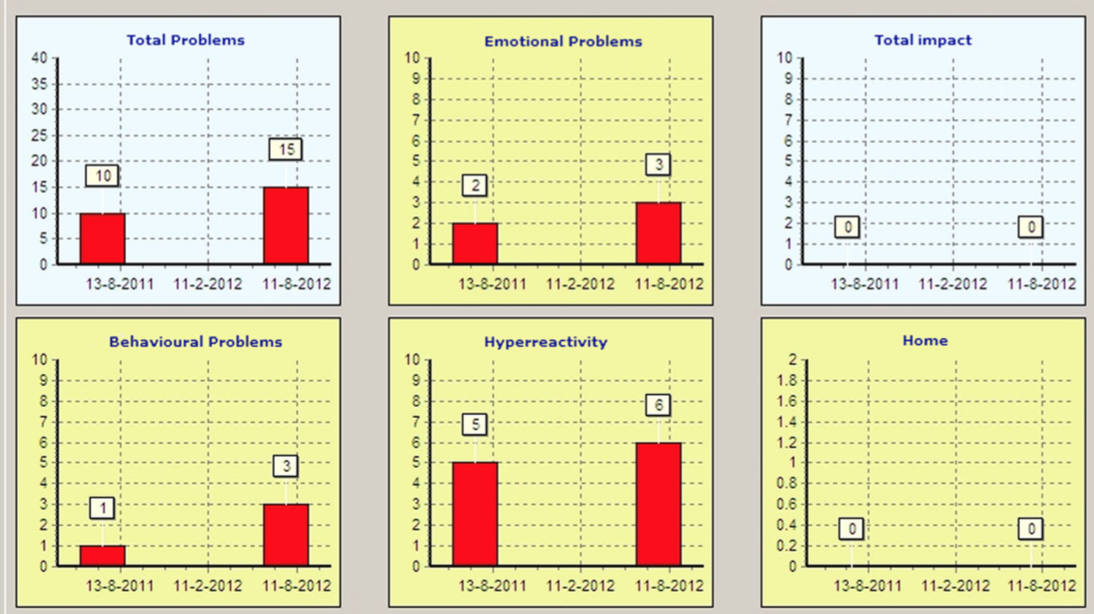- 15.01.2019,
- Unkategorisiert
Studie zur Lebensqualität nach einer RB Erkrankung

Eine interessante Studie der Universität Amsterdam unter der Leitung von Prof. Dr. Annette Moll zeigt, dass die Lebensqualität von RB Patienten in Vergleich zu den Patienten anderen Krebserkrankungen gut ist. Allerdings sind die Angst vor der Entwicklung zweiter primärer Malignome, weiterer Sehverlust und die Weitergabe der Krankheit an die Kinder wichtige lebenslange Widrigkeiten sowohl bei Überlebenden als auch bei Eltern.
Hier möchten wir eine Zusammenfassung der Studie in englischer Sprache veröffentlichen. Die gesamte Studie finden Sie im angehängten PDF.
Psychosocial aspects of retinoblastoma patients in the Netherlands July 2018
Long-term retinoblastoma survivors experience a good overall quality of life and limited psychosocial problems in comparison with peers. But fear of developing second primary malignancies, further loss of vision and passing the disease on to their offspring are important lifelong adversities in survivors, as well as in parents.
Retinoblastoma is diagnosed and treated in first years of life. Therefore it could have effect on people’s personality and psychosocial maturation. It is known that negative life events threaten secure attachment between infant and caregiver. Parental distress and uncertainty is caused by diagnosis, treatment and prognosis. Family’s ability to cope with uncertainty affect functioning of the child. Overprotection is a serious risk factor for delayed autonomy, delayed entry into long-term-partnership, and depression. Side effects of treatment is a constant reminder for the retinoblastoma survivor that he or she is different from others.
It seems particularly important how survivors themselves, as well as their environment cope with the disease, and whether the consequences of retinoblastoma are actually being experienced as a problem. Although most retinoblastoma survivors learn to live with the consequences of their disease, a subgroup of adult retinoblastoma survivors and parents report more internalizing problems and worries, and perceive specific restrictions in daily life. A substantial part of the patients that survived this disease in the last few decades needed special educational services and were confronted with bullying at school – whether or not there is a relationship between these two factors remains unclear. Survivors at risk were those who had a combination of heredity and intensive treatment with external beam irradiation in a context of other life events, with less social support, experience of bullying in childhood, experience of restrictions in daily life, problems in accepting the disease, and those using emotion-oriented coping.
It is important to evaluate the functioning of survivors during their individual follow-up bearing these risk factors in mind, so that they may be referred for psychological guidance or treatment in case of psychosocial problems. Therefore we developed RetinoQuest. This is a touch screen computer program to monitor health related quality of life of retinoblastoma survivors via patient reported outcome measures targeting children (4-10 years) as evaluated by their parents (proxy measures), adolescents (11-18 years) and adults. The doctor discusses the outcome immediately with the patient during visit retinoblastoma clinic. If a patient reports psychological problems we organize psychosocial support by our psychologist.
Quelle: Annette C. Moll, MD, PhD, Professor of Ophthalmology, Amsterdam University Medical Centers, location VU University Medical Center
Adapted from/References:
Thesis Jennifer van Dijk, 2009 VU University Amsterdam
van Dijk J, Oostrom KJ, Huisman J et al. Restrictions in daily life after retinoblastoma from the perspective of the survivors. Pediatr. Blood Cancer 54, 110–115 (2010).
van Dijk J, Grootenhuis MA, Imhof SM et al. Coping strategies of retinoblastoma survivors in relation to behavioural problems. Psychooncology 18, 1281–1289 (2009).
van Dijk J, Huisman J, Moll AC et al. Health-related quality, of life of child and adolescent retinoblastoma survivors in the Netherlands. Health Qual. Life Outcomes 5, 65 (2007).
McNeill NA, Kors WA, Bosscha MI, et al. Feasibility of RetinoQuest: e-health application to facilitate and improve additional care for retinoblastoma survivors. J Cancer Surviv. 2017 Dec;11(6):683-690.
Moll AC, van Dijk J, Bosscha MI et al. Second malignancies and other long-term effects in retinoblastoma survivors. In Retinoblastoma: Clinical Advances and Emerging Treatment Strategies. 2013. P. 109-125 www.futuremedicine.com